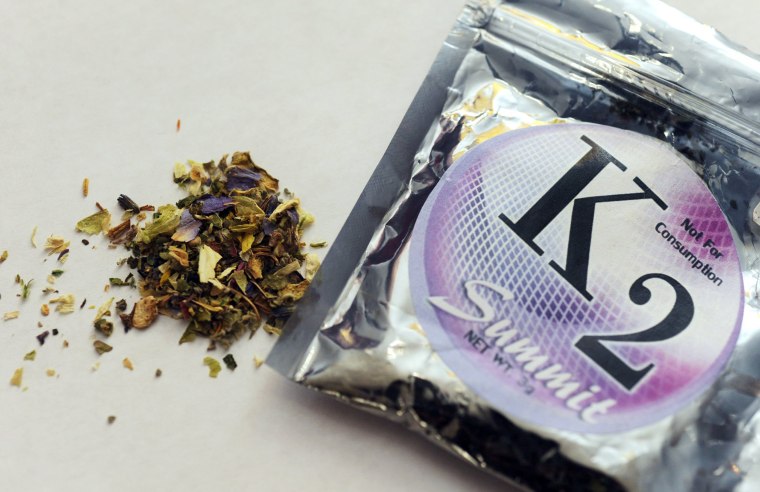The contaminated synthetic marijuana that Illinois public health officials have been warning about has claimed at least two lives — a 22-year-old suburban Chicago man and another state resident.
The Chicago man, who died on March 28 after smoking synthetic pot, was found to have in his system traces of the anticoagulant brodifacoum — which is a chemical used in rat poison — the Cook County Medical Examiner’s Office reported Friday. The agency did not release his name.
The other fatality was reported by the Illinois Department of Public Heath, which did not identify that person either.
“Public health agencies are reporting that patients who admitted to smoking synthetic cannabinoids are presenting to hospitals with severe bleeding and testing positive for brodifacoum,’ Dr. Ponni Arunkumar, the chief medical examiner, said in a statement. “Brodifacoum is a highly lethal rodenticide and should not be consumed.”
The reported death comes less than a week after Illinois officials reported an outbreak of 89 cases since March 7 of severe bleeding linked to contaminated drugs. Thirty of those cases were in what's called Chicagoland, meaning the city and suburbs.
“This poisoning is unique in that its effects can last weeks to months,” Dr. Jenny Lu, a toxicologist at John H. Stoger Jr. Hospital of Cook County said in the ME’s release. “Symptoms may range from unexplained bruising, bleeding from the nose or gums, blood in the urine or stools, coughing up or vomiting blood, to bleeding in the brain. Even without symptoms, the blood’s ability to clot is severely impaired and risk of bleeding is high.”
Sold as K2 or "Spice," synthetic cannabinoids are chemicals that are “sprayed on dried, shredded plant material so they can be smoked or sold as liquids to be vaporized and inhaled in e-cigarettes and other devices,” according to the National Institute on Drug Abuse (NIDA).
The chemicals act on brain cell receptors like marijuana and are often marketed as safe and legal alternatives to pot.
But according to NIDA. "in fact, they are not safe and may affect the brain much more powerfully than marijuana; their actual effects can be unpredictable and, in some cases, more dangerous or even life-threatening,”
